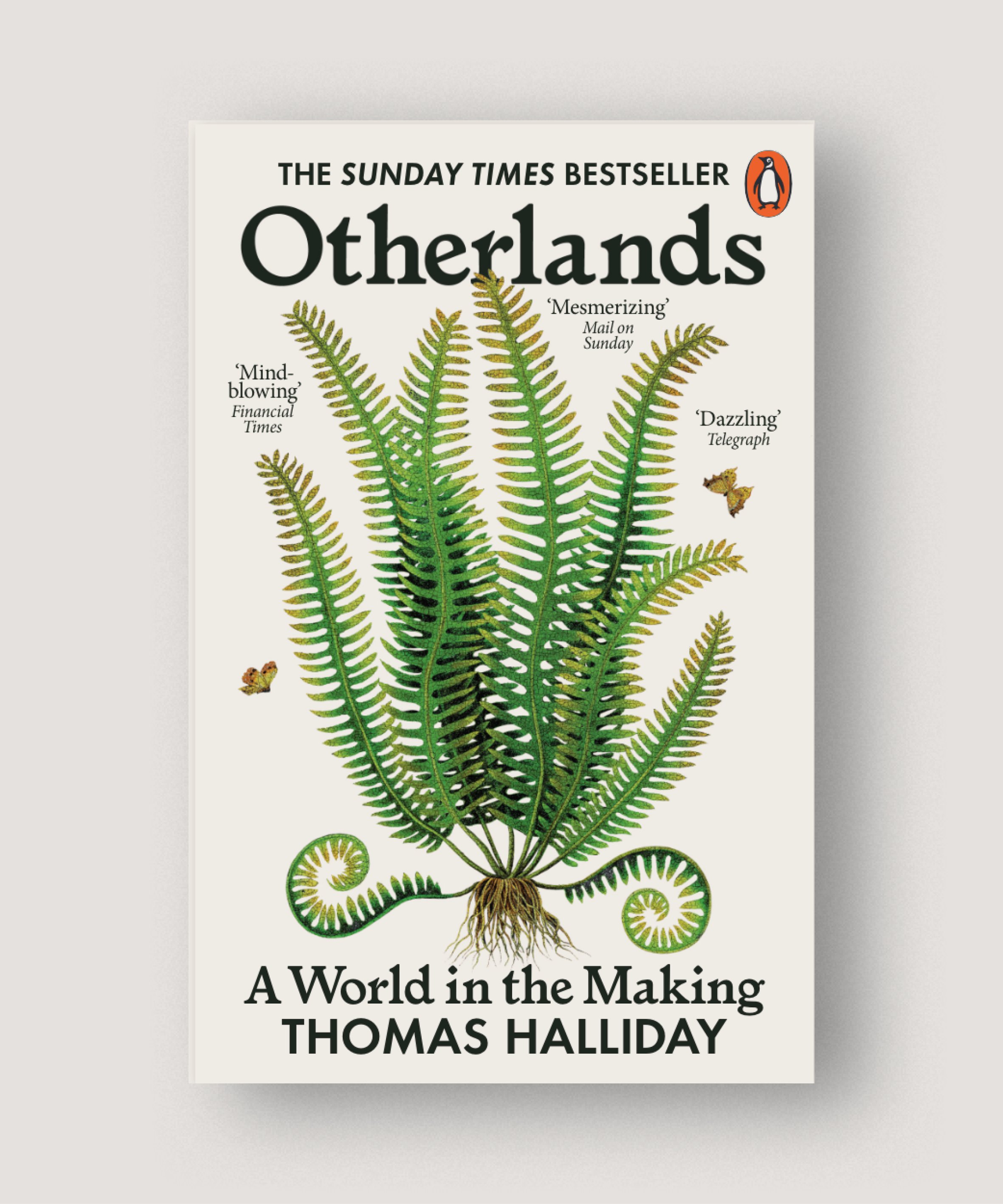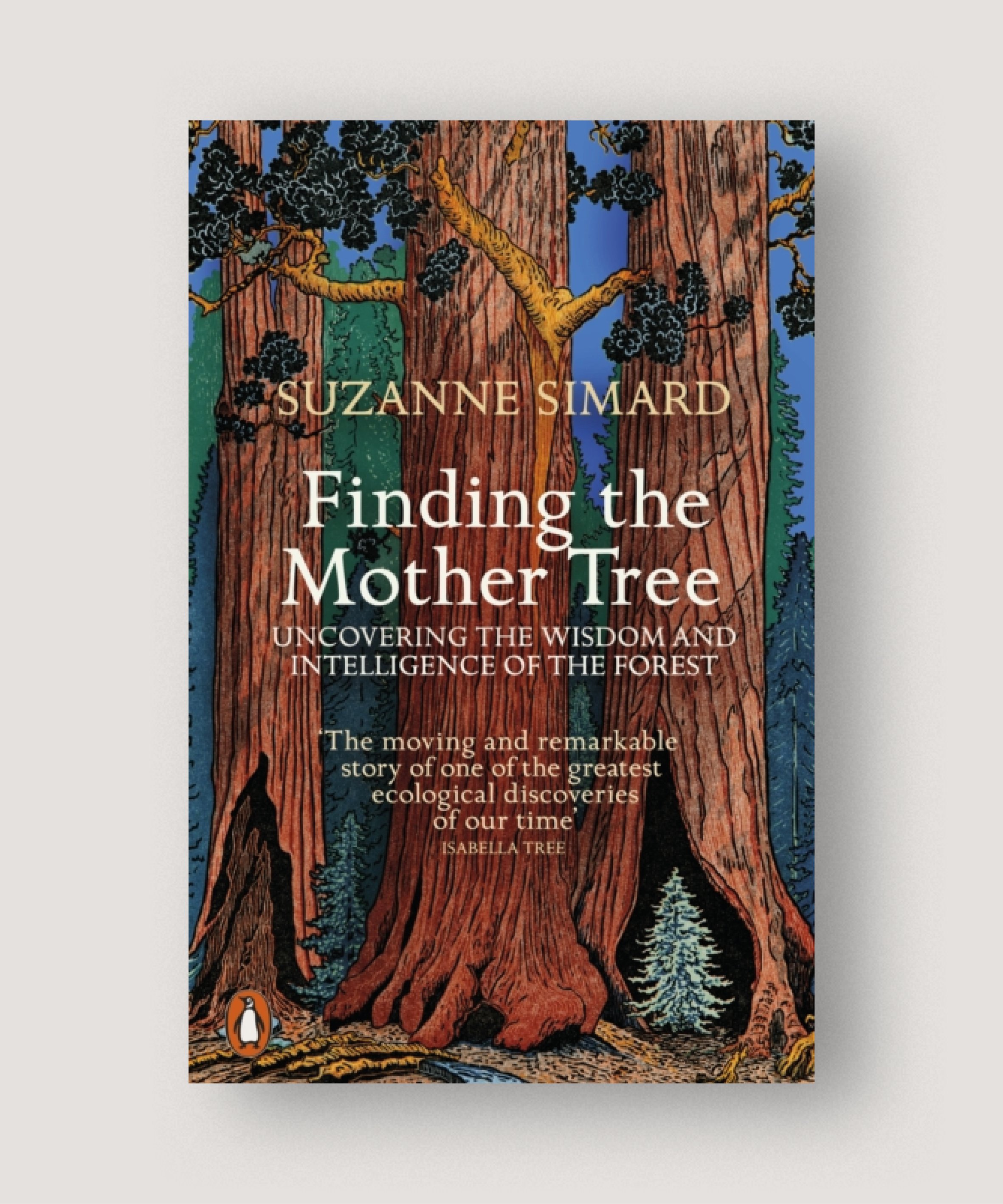Otherlands – Thomas Halliday
The past is past, but it does leave clues, and Thomas Halliday has used cutting-edge science to decipher them more completely than ever before. In Otherlands, Halliday makes sixteen fossil sites burst to life on the page.
This book is an exploration of the Earth as it used to exist, the changes that have occurred during its history, and the ways that life has found to adapt―or not. It takes us from the savannahs of Pliocene Kenya to watch a python chase a group of australopithecines into an acacia tree; to a cliff overlooking the salt pans of the empty basin of what will be the Mediterranean Sea just as water from the Miocene Atlantic Ocean spills in; into the tropical forests of Eocene Antarctica; and under the shallow pools of Ediacaran Australia, where we glimpse the first microbial life.
Otherlands also offers us a vast perspective on the current state of the planet. The thought that something as vast as the Great Barrier Reef, for example, with all its vibrant diversity, might one day soon be gone sounds improbable. But the fossil record shows us that this sort of wholesale change is not only possible but has repeatedly happened throughout Earth history.
The past is past, but it does leave clues, and Thomas Halliday has used cutting-edge science to decipher them more completely than ever before. In Otherlands, Halliday makes sixteen fossil sites burst to life on the page.
This book is an exploration of the Earth as it used to exist, the changes that have occurred during its history, and the ways that life has found to adapt―or not. It takes us from the savannahs of Pliocene Kenya to watch a python chase a group of australopithecines into an acacia tree; to a cliff overlooking the salt pans of the empty basin of what will be the Mediterranean Sea just as water from the Miocene Atlantic Ocean spills in; into the tropical forests of Eocene Antarctica; and under the shallow pools of Ediacaran Australia, where we glimpse the first microbial life.
Otherlands also offers us a vast perspective on the current state of the planet. The thought that something as vast as the Great Barrier Reef, for example, with all its vibrant diversity, might one day soon be gone sounds improbable. But the fossil record shows us that this sort of wholesale change is not only possible but has repeatedly happened throughout Earth history.
The past is past, but it does leave clues, and Thomas Halliday has used cutting-edge science to decipher them more completely than ever before. In Otherlands, Halliday makes sixteen fossil sites burst to life on the page.
This book is an exploration of the Earth as it used to exist, the changes that have occurred during its history, and the ways that life has found to adapt―or not. It takes us from the savannahs of Pliocene Kenya to watch a python chase a group of australopithecines into an acacia tree; to a cliff overlooking the salt pans of the empty basin of what will be the Mediterranean Sea just as water from the Miocene Atlantic Ocean spills in; into the tropical forests of Eocene Antarctica; and under the shallow pools of Ediacaran Australia, where we glimpse the first microbial life.
Otherlands also offers us a vast perspective on the current state of the planet. The thought that something as vast as the Great Barrier Reef, for example, with all its vibrant diversity, might one day soon be gone sounds improbable. But the fossil record shows us that this sort of wholesale change is not only possible but has repeatedly happened throughout Earth history.






